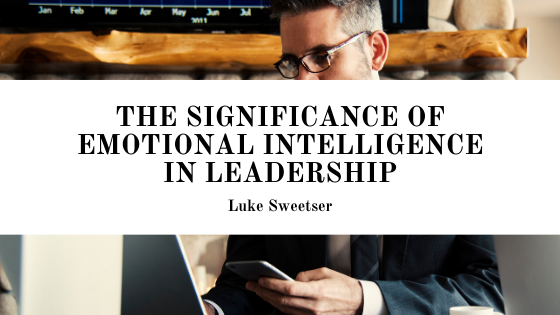
Emotional intelligence, EQ for short, is one of the most important aspects of a healthy social life and relationship success. Personal and professional communication call for a deep understanding of how to thoughtfully respond to one’s own feelings; only then can someone truly be capable of receiving others’ feelings without harsh judgment and impulsive reactions.
For leaders, being emotionally intelligent means being able to hear people’s thoughts without trying to determine what they mean for them. Strong leaders are aware of themselves, in tune with others, and consistently strive to help everyone they encounter to achieve the best results.
The role of emotional intelligence in leadership is fundamental; a cornerstone of healthy self-esteem, it enables someone to bounce back in the face of failure, overcome hardships and turn their negative experiences into positive, inspiring life lessons that they pass on to others.
Emotional Intelligence Theory
There are five principal domains that psychologists use to break down emotional intelligence.
- Self-awareness.
- Self-regulation.
- Self-motivation.
- Social awareness.
- Social skills.
The ability to recognize and regulate one’s own feelings summarize the first two principles; self-motivation refers to a person’s ability to set and achieve personal goals and act on new opportunities. Those who lack self-motivation may avoid taking risks or view failure as a sign they aren’t good enough and therefore shouldn’t try; a leader who lacks self-motivation may find it easy to motivate others, but they often feel as if their inspirational words are a rehearsed speech and not something that relates to themselves.
Social awareness and skills encompass all of the nuances of interpersonal relationships. Being able to pick up on body language and non-verbal social cues can help a leader know what to say and when to hold their tongue. Recognizing the subtleties of emotion in people’s words, facial expressions, and vocal tones all play a role in well-developed emotional intelligence.
How to Improve
A leader is someone who willingly admits their own shortcomings. Someone who lacks emotional intelligence or wishes to strengthen theirs should start with getting in touch with themselves. The cyclic nature of emotional feedback requires strong self-awareness, which means addressing any repressed emotions that could be serving as a barrier to a more authentic, confident self.
Leadership coaching, therapy, and self-work can all help someone transform themselves into the emotionally intelligent, genuine mentor they wish to become.

